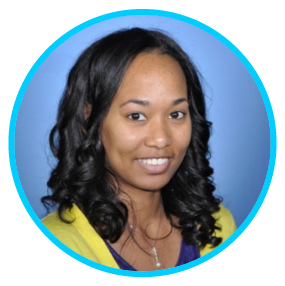Despite Nikesha Davis growing up in a family of educators, STEM still seemed
like a foreign language, until the right teacher came along. Join Davis,
aerospace engineer and NASA’s GSFC Propulsion Chief, as she discusses changing
the narrative of STEM in a student’s everyday life, and the benefits that
science in use, and language in use play not only in the classroom, but at NASA,
and in life in general. Her goal is to inspire students, parents, families, and
educators on the engineering around us, as we prepare our students to change the
world.
About the Speaker
 Ms. Nikesha Davis is an Aerospace Engineer at NASA Goddard Space
Flight Center (GSFC) in Greenbelt, Maryland. She has worked in NASA’s Mission
Engineering and Systems Analysis (MESA) Division for the past twelve years.
Nikesha is the Branch Head of the Propulsion Branch at GSFC. Here she manages
liquid and chemical propulsion system design, analysis, and fabrication efforts.
This work includes larger spacecrafts and satellites, down to CubeSats and
SmallSats, in addition to research in the propulsion arena. In addition to these
duties, Nikesha is continuing efforts as the Guidance, Navigation, and Control
(GN&C) Product Development Lead for the Plankton, Aerosol, Could, ocean
Ecosystem (PACE) mission. A remote sensing, $805 million mission which launches
in December 2023. In this capacity, Nikesha is responsible for coordinating
efforts to deliver the Attitude Control System, Flight Dynamics System, and
GN&C Hardware for the PACE project.
Ms. Nikesha Davis is an Aerospace Engineer at NASA Goddard Space
Flight Center (GSFC) in Greenbelt, Maryland. She has worked in NASA’s Mission
Engineering and Systems Analysis (MESA) Division for the past twelve years.
Nikesha is the Branch Head of the Propulsion Branch at GSFC. Here she manages
liquid and chemical propulsion system design, analysis, and fabrication efforts.
This work includes larger spacecrafts and satellites, down to CubeSats and
SmallSats, in addition to research in the propulsion arena. In addition to these
duties, Nikesha is continuing efforts as the Guidance, Navigation, and Control
(GN&C) Product Development Lead for the Plankton, Aerosol, Could, ocean
Ecosystem (PACE) mission. A remote sensing, $805 million mission which launches
in December 2023. In this capacity, Nikesha is responsible for coordinating
efforts to deliver the Attitude Control System, Flight Dynamics System, and
GN&C Hardware for the PACE project.
Ms. Davis enjoys volunteering in the community, through NASA and other
programs, and is very passionate about spreading the word about STEM fields and
broadening the understanding of what engineers do. She holds a bachelor’s degree
in mathematics from Spelman College, and a bachelor’s and master’s in aerospace
engineering, and systems engineering respectively from the University of Alabama
Huntsville.
SPEAKERS:
Nikesha Davis (NASA Goddard Space Flight Center: Greenbelt, MD)